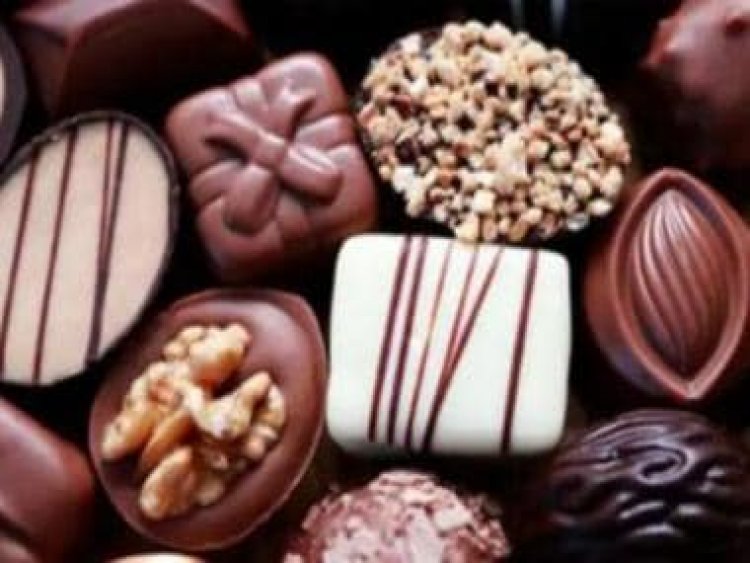Sugar cravings during periods might be a symptom of Pre-Menstrual Syndrome
Sugar cravings during periods might be a symptom of Pre-Menstrual Syndrome

Is sugar cravings during periods happening to you? If yes, then it could be one of the symptoms of Pre-Menstrual Syndrome, also known as PMS.
PMS is the name for the symptoms women can experience in the weeks before their period. Most women have PMS at some point.
Researchers have documented more than 150 different PMS symptoms in studies, ranging from physical to emotional to behavioural to cognitive. Food cravings are one of the most commonly reported behavioural PMS symptoms, along with mood swings, irritability, anxiety and tension, and sad or depressed mood.
A woman doesn’t need an official diagnosis of PMS to report yearning for sweets and chocolates though. The proportion of women of reproductive age reporting at least one PMS symptom ranges between 40–90% [BJOG, 2016; Sammon, 2016].
How PMS is connected to sugar cravings?
Serotonin is the Answer! – Serotonin is a neurotransmitter (a brain chemical) which plays a key role in body functions such as mood, sleep, digestion, nausea, wound healing, bone health, blood clotting and sexual desire. It is one of the ‘feel-good’ hormones that promotes happiness and maintains emotions.
In some women, serotonin levels stay mostly steady. Women with PMS, serotonin drops as oestrogen drops. This means serotonin is lowest in the 2 weeks before the period. When that happens, we crave sugars and especially carbohydrates (like sweets or potato chips) because the body uses carbs to make serotonin. As sugar boosts serotonin levels, you feel happier (but only temporarily), so your brain keeps craving for this “happy” chemical again and again.
How can I manage my sugar cravings? – Face it & Defeat it; Don’t Avoid it
While we have no control over the natural physiological phenomenon, we certainly can control the food choices we make during cravings. Although, these cravings are temporary and harmless in general but they can affect the blood sugar levels and can cause weight gain in the long term if not addressed appropriately.
Top Tips
- Eat Right – Eat a healthy balanced meal with wholegrains or complex carbohydrates; vegetables or salad and lean proteins.
- Meal Composition – Composition of your meals are extremely important. Remember, fibre and proteins are crucial to keep you satisfied for longer periods. The more you are satisfied, the less you will give into cravings!
- Avoid Skipping Meals – Eat regularly and avoid long gaps between meals
- Mind The Portions – Rather than avoiding your favourites, try including them in restricted portions. E.g., instead of a big chocolate bar, try to choose one or two individually wrapped small chocolates.
- Plan Ahead – Have a plan in advance! If you know your downfall! Have a ‘Back-up Plan’ – stock your cupboards with healthy snacks that are less in sugar/ saturated fats; store them in small portions to avoid over eating.
- Fluids First – when craving strikes, choose sugar free fluids first instead of solid snacks. E.g., water/ beverages such as herbal tea or decaf coffee without sugar or with sweeteners.
- Use Artificial Sweeteners – you can satisfy sugar cravings with artificial sweeteners in your dessert (but mind the calories!) – instead of using sugary desserts, choose sweets made of sweeteners such as stevia/ aspartame/ saccharin – these are non-nutritive sweeteners that doesn’t provide any calories or raise blood sugars and can be used safely as part of a healthy diet. E.g., lemon juice with sweeteners.
- Reduce Access To Snacks – Avoid storing sugary/ fatty snacks at home. Move away from kitchen or dining areas after meals and reduce your chance of getting into temptations! Tip – keep water within your reach!
- Distraction Techniques – cravings usually stay for only shorter periods of time, so choose distractions such as exercise/ walking outdoors/ DIY activities/ chatting with friend or family/ playing games or puzzles etc. This will help you to forget your cravings as you are busy and preoccupied.
- Be Active – Aim to incorporate physical activity as part of your daily routine. Try to do at least 30mins of physical activity per day OR 150mins of physical activity per week. Choose both aerobic and anaerobic exercises.
The author is the Registered Specialist Dietitian, NHS UK and Dietetic Lead, Practo. Views are personal.
Read all the Latest News, Trending News, Cricket News, Bollywood News,
India News and Entertainment News here. Follow us on Facebook, Twitter and Instagram.
What's Your Reaction?


















































![Alpilean Reviews [Urgent Warning] Weight Loss Ingredients or Negative Customer Side Effects?](https://bizli.net/uploads/images/202211/image_380x226_6364d496e9ca5.jpg)








